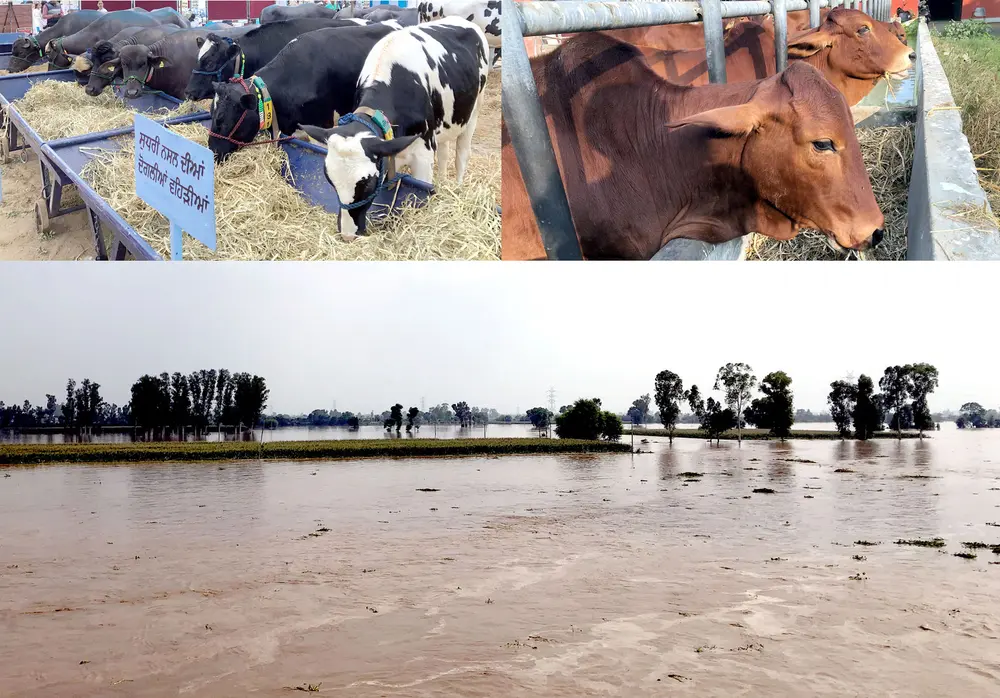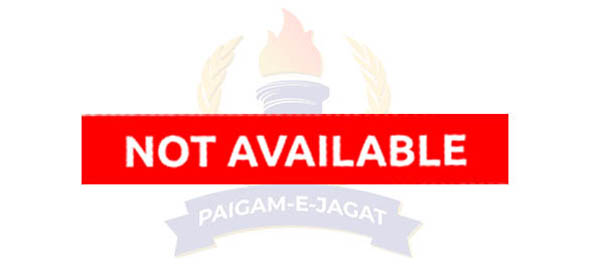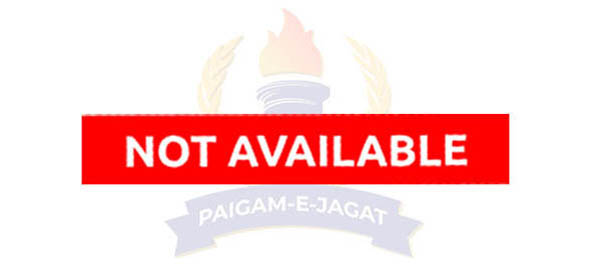
Veterinary University issues guidelines for animal care during floods.
Ludhiana 28 August 2025:- Due to heavy rains and high water in rivers in Punjab and neighboring states, flood situation has become a serious challenge for farmers and animal husbandry. Due to flood water, animals can be at risk of infectious diseases and parasites. Due to standing water, there can be a severe shortage of fodder crops, straw and feed, which has further adverse effects on animals.
Ludhiana 28 August 2025:- Due to heavy rains and high water in rivers in Punjab and neighboring states, flood situation has become a serious challenge for farmers and animal husbandry. Due to flood water, animals can be at risk of infectious diseases and parasites. Due to standing water, there can be a severe shortage of fodder crops, straw and feed, which has further adverse effects on animals.
Parasites like mosquitoes, flies, leeches and ticks also increase in these conditions. Dr. Ravinder Singh Grewal, Director Extension Education, Guru Angad Dev Veterinary and Animal Sciences University, Ludhiana, while mentioning these concerns, advised that wherever possible, it is necessary to move animals to a safe place away from flood-affected and adjacent areas.
Dr. Grewal said that lameness fever becomes common in animals due to flies and mosquitoes. Necessary arrangements need to be made at the local level to prevent them. Ticks can cause tick-borne disease/babesiosis in animals. To control ticks in animal enclosures, cracks or gaps in the floor and walls of the shed should be filled and recommended medicines should be sprayed with the advice of veterinary experts. Flood water can contain dangerous germs like Salmonella and E. coli which can cause diarrhea in animals. Apart from this, animals can suffer from tetanus and jaundice due to Clostridium and Leptospira. To prevent these diseases, the quality of water can be tested. Especially the water used to feed calves can be boiled and cooled first.
Standing in a damp place can cause the hooves of the animals to rot and the animal may become lame. If possible, dry grass/straw etc. should be spread in the place where the animals stand. To take care of the hooves, they can be cleaned with a brush or dipped in a 5 percent formalin solution.
Due to increased humidity in the environment, animals can also get throat disease and scurvy. To protect against lumpy skin disease and scurvy, it is necessary to get the animals vaccinated. To protect against scurvy, after feeding, the udders should be dipped in a 3:1 solution of betadine and glycerin.
Due to the dampness in the environment, the animals' feed/grains and straw etc. can get moldy, and the animals can get mold poisoning. Keep the animal feed in a dry place to protect it from moisture. The immune system of the animal can be weakened due to lack of muscle and food. Vitamin food can be used to strengthen the body and the ability of the animal to fight diseases.
The use of metal powder in animals is very important for their health. In case of shortage of fodder and food, 1 quintal of straw can be treated with a solution of 30 liters of water, 3 kg of sugarcane and 1 kg of urea and fed to the animals.
Animal husbandry can contact the university at 62832-58834 and 62832-97919 to solve their problems.














